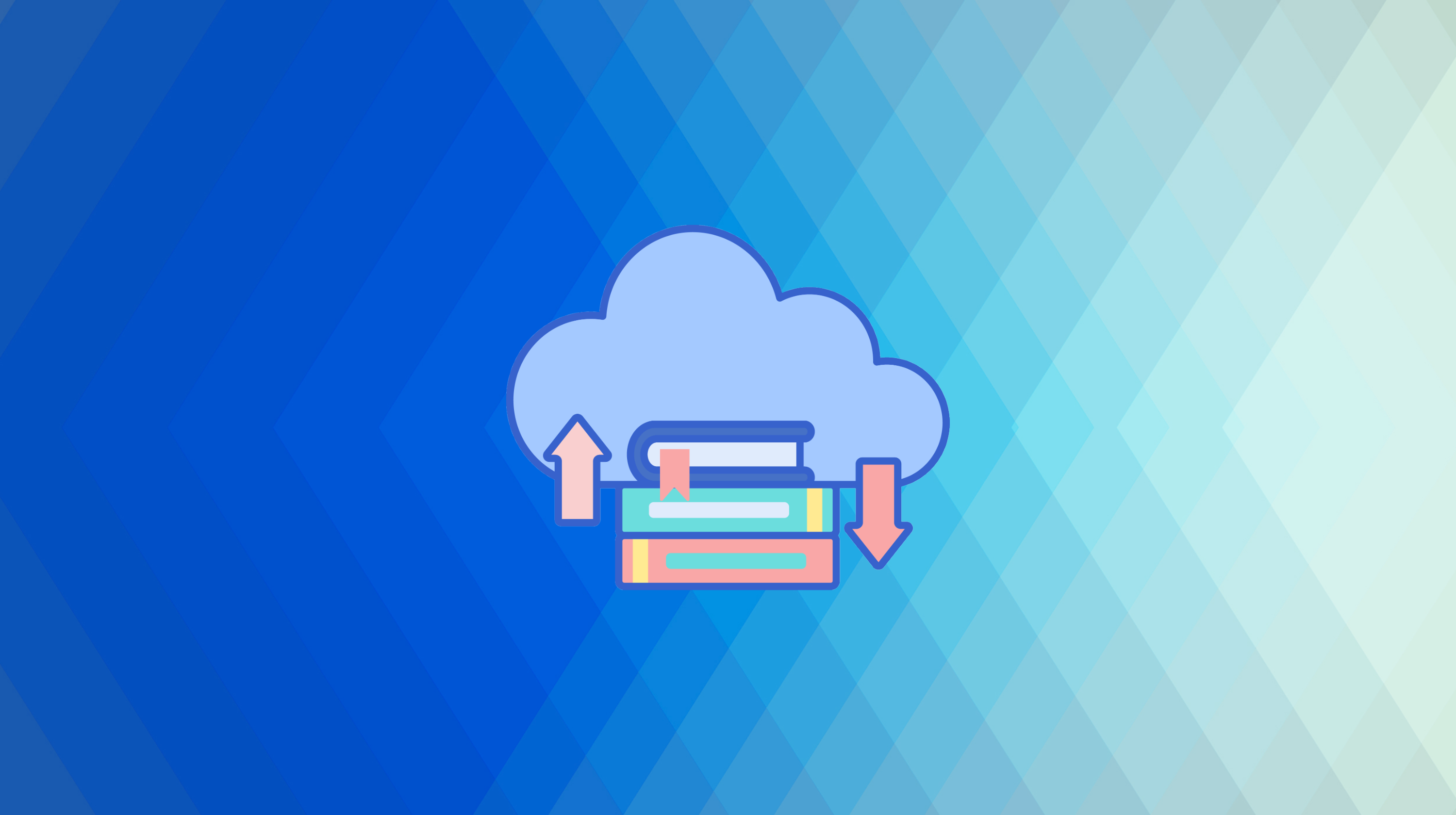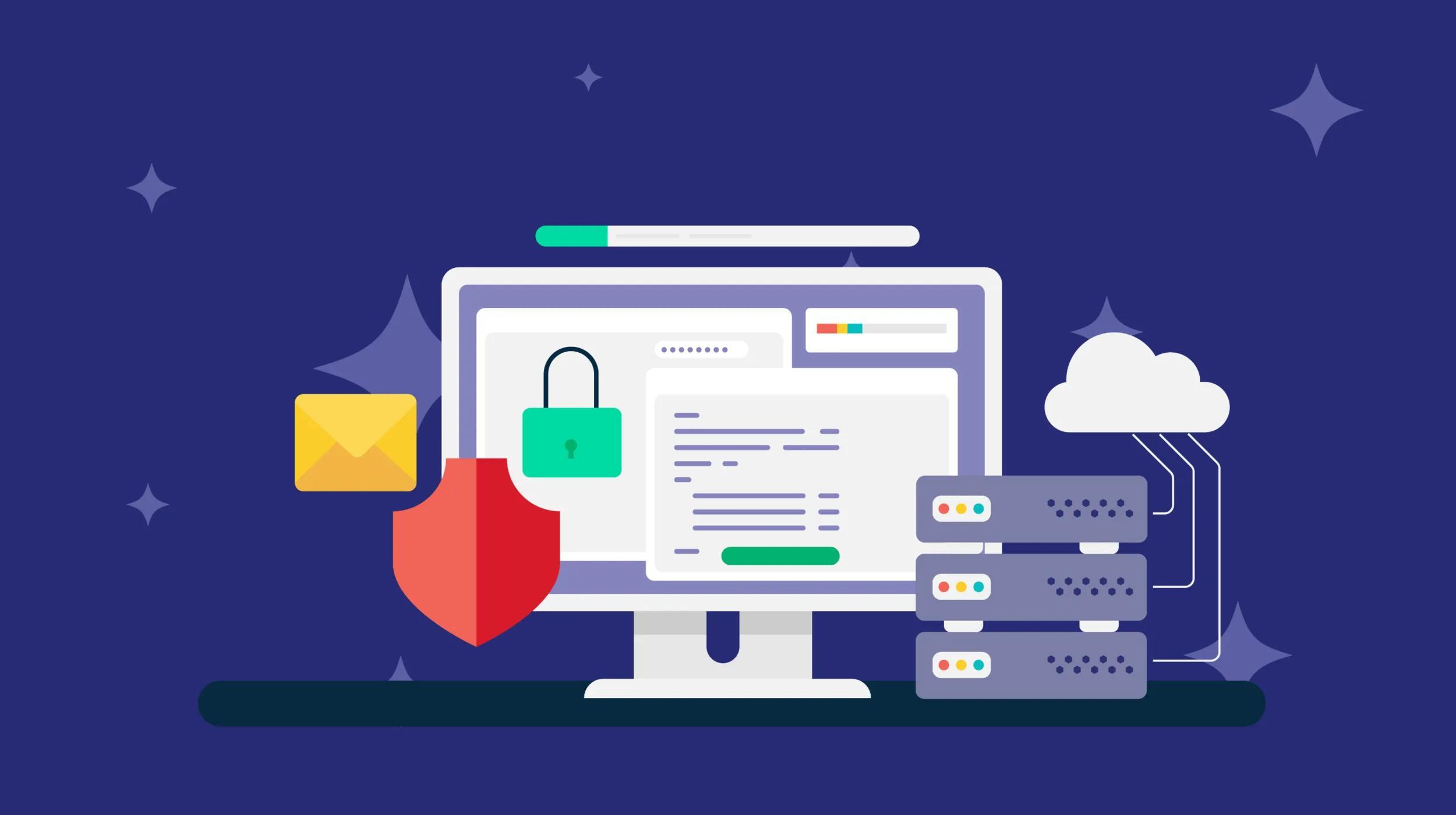How can you keep your files safe and secure in the cloud?
For this question, we asked IT security experts and CEOs to share their best tips. From encrypting the files to turning on account alerts and getting notified of new sign-ins, there are several practical tips to help ensure the files you save in the cloud are well protected.
Here are 11 tips from the professionals we interviewed on keeping files safe and secure in the cloud:
- Encrypt the files.
- Use strong passwords at every level.
- Secure end-user devices.
- Avoid using the same password across many online accounts.
- Keep your devices updated.
- Use a modern password manager.
- Check your connected apps.
- Monitor your files with drive permissions auditor.
- Invest in an anti-malware program.
- Use two-factor authentication.
- Turn on accounts alerts for new sign-ins.
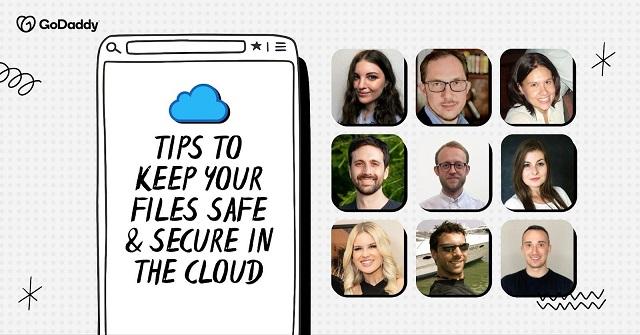
Your business needs a website.
Encrypt the files
The best tip for keeping your files safe and secure in the cloud is encrypting them. This way, even if the cloud server is hacked, the hackers will not be able to access your data. Encryption is a process of transforming readable data into an unreadable format.
In order to decrypt the data, you need a key. The key can be a physical object, like a USB drive, or it can be a piece of software. There are many different types of encryption, but the most common type is known as Advanced Encryption Standard (AES). AES uses a 128-bit key, meaning there are 2^128 possible keys. This number is so large that it is effectively impossible for anyone to brute force their way into your data. There are also a number of different ways to encrypt data, so you'll need to do some research and select the method that best meets your needs. But, if you want to keep your files safe and secure in the cloud, encrypt them before you store them in the cloud.
Magdalena Socha, PhotoAiD
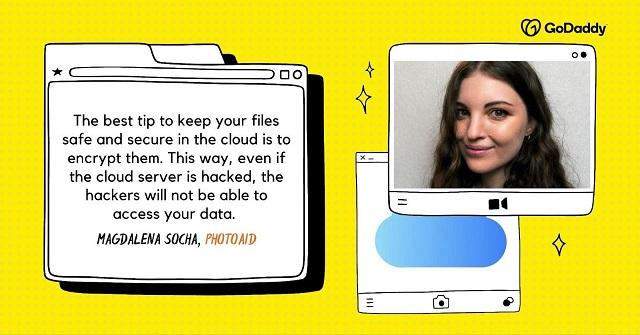
Use strong passwords at every level
The easiest answer is to have a strong password. Each additional character in a password exponentially increases the amount of time it takes a computer to figure it out. A nine character password takes three weeks to figure out. Adding one more character bumps it to five years. If your cloud provider offers multi-factor authentication, use it. If they don't, find another provider. Still nervous about your files? You can always password-protect the files themselves. There are many compression programs that will allow you to compress a group of files and then set a password on the resulting compressed file. This adds another layer of security — assuming you don't use the same password.
Peter Robert, Expert Computer Solutions
Secure end-user devices
One of the best tips to keep your files safe and secure in the cloud is to make sure that your end-user devices are secure. This means you should have a strong password on your device, as well as up-to-date security software.
In addition, you should be careful about what you download and install on your device. Only download apps from trusted sources, and be sure to read the permissions before installing anything. By taking these simple steps, you can help ensure that your files are safe and secure in the cloud.
Lorien Strydom, Financer.com
Avoid using the same password across many online accounts
Did you know that 90% of all passwords can be broken in less than a minute? When it comes to protecting access to your company's information, your password is the first line of protection. The strongest protection in the world, however, is rendered meaningless if a malevolent actor gains access to your usernames and passwords.
Aside from choosing a secure and unique password, make sure to update it periodically and avoid using the same password across many online accounts. Secure passwords make it tough for hackers to access your data and reduce the likelihood of an unwanted breach into your cloud.
Samantha Odo, Precondo
Keep your devices updated
As aggravating as two-factor authentication can be, your decision to use it protects files that are stored in the cloud. This isn't the only thing that keeps them safe, but it helps knowing someone else can't sneak into your account and download information. Two-factor authentication is currently the standard protocol for most services anyway — from email to storage — so it's an expected practice for cloud servers as well.
Bruce Tasios, Tasios Orthodontics
Use a modern password manager
It's not if but when one of your accounts will be compromised. A password manager will help to keep your accounts safe by allowing you to use strong, unique passwords for each account and storing them securely. Any files stored in the cloud should require two-factor authentication where possible, so consider looking for a password manager that contains this component.
Ben Travis, HR Chief
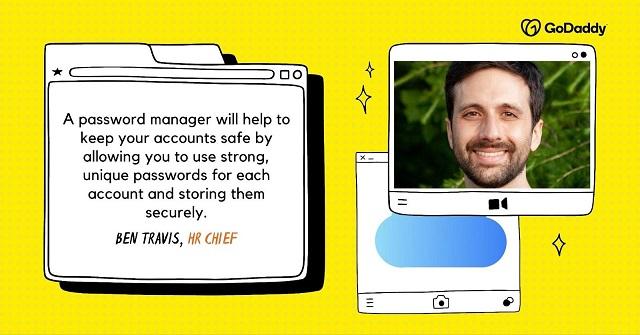
Check your connected apps
Hackers are always finding new ways to get around security in your account, and they often try to hack using your connected third-party apps. To protect files, you must regularly check which applications have access to your cloud storage. If you aren't using that app, remove it. You'll make it much more difficult for hackers to use this strategy and gain access to your valuable files.
Georgi Todorov, ThriveMyWay
Monitor your files with drive permissions auditor
In our business, we use Google Drive to store our secure data. In order to keep these files safe, we use Drive Permissions Auditor. It allows us to monitor who has access to our shared files in Google Drive and what level of permission they have. It is a free add-on, which gives us peace of mind when it comes to our safety. There are plenty of add-ons you can install for other cloud drives, and I think it’s important to have them as another layer of security.
Luke Smoothy, Get It Made Ltd
Invest in an anti-malware program
Investing in a solid anti-malware system is the most common and simple way to protect your files in the cloud. In fact, this should be the first step everyone needs to take to protect their data. You don't have to know cybersecurity or be an IT specialist. Your job is to find a reliable program, download it and run it on your devices. The system regularly scans your: computer, downloaded apps, all incoming files and everything else that passes through your network traffic. If your system or any file turns out to be infected, anti-malware will block it and allow you to safely remove it without collateral damage. It takes from your shoulders the need to constantly monitor what sites you enter and what files you download or receive from others. It basically functions as your safeguard.
Nina Paczka, Resume Now
Use two-factor authentication
Coming up with a tough-to-crack password is hard enough, but you can add an additional layer of security to your files stored in the cloud with two-factor authentication. When you or someone else logs in from an unknown device, you will be prompted on your known device to allow access. This is usually done via an email, a text message to your phone or a secure code from an authentication app (such as Google Authenticator). You can usually enable two-factor authentication via your cloud service's security and login settings. Turn it on now!
James Francis, Mozillion
Turn on account alerts for new sign-ins
One of the best ways to keep your files safe and secure is by turning on account alerts. This means you’ll be notified of any new activity occurring on the cloud — such as new sign-ins, new shares, folders created etc. This will give you an advantage by keeping track of who has access to your cloud. It also allows you to instantly spot any unwanted access or visitors, plus helps you take the necessary action to protect your files — thus keeping sensitive information away from harm.
Jenna Nye, On the Strip
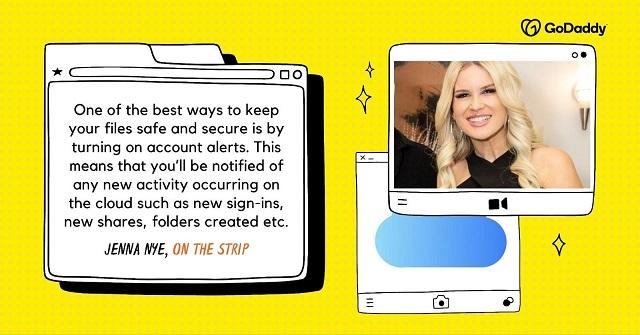
Disclaimer: Opinions belong to the author alone and do not necessarily represent the views of GoDaddy. All trademark rights belong to their respective owners. Third-party trademarks are used here for demonstrative and educational purposes only; use does not represent affiliation or endorsement.
